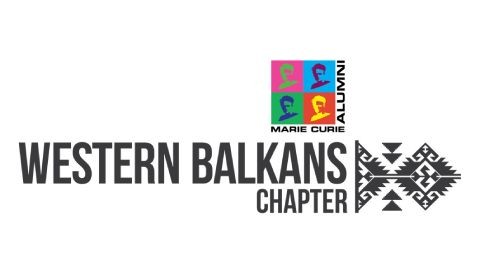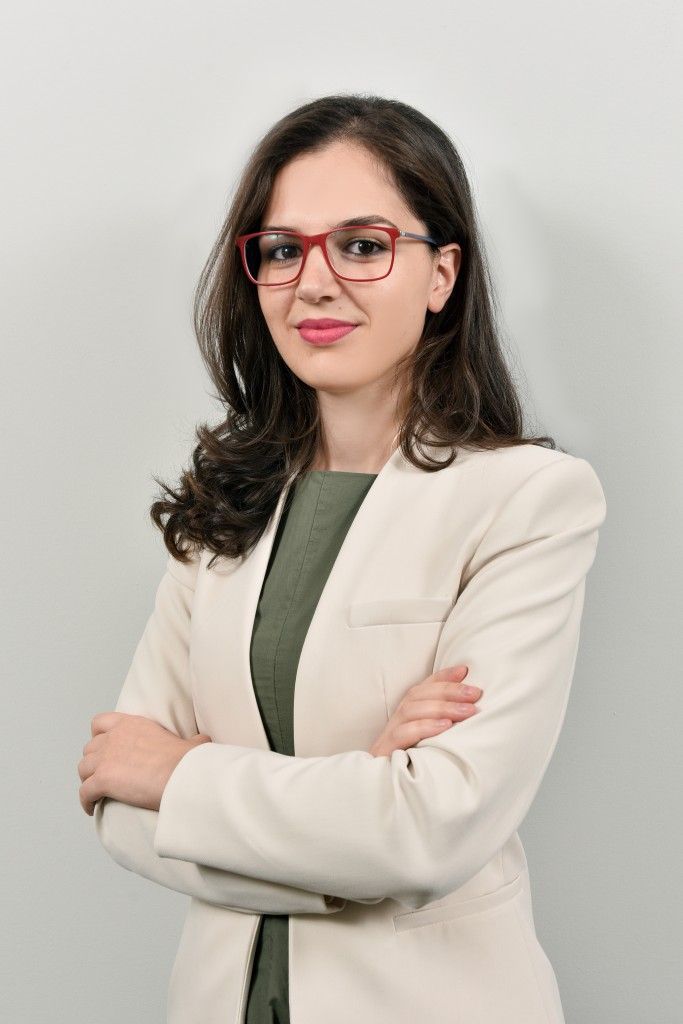News from the Chapters - Western Balkans Chapter – chairing six countries
Newsletter


We met Ornela Bardhi, the new Chair of the Western Balkans Chapter. She shared with us past and upcoming activities, including an exciting Wikipedia edit-a-thon. She is looking forward to organising more physical meetings, if the current sanitary COVID restrictions allow it.
Ornela Bardhi, in her own words
I recently moved back to my home country, Albania, to be part of a leadership fellowship called LEAD Albania where, besides training in leadership skills, I work as a scientific advisor to the Minister at the Ministry of Health and Social Protection of Albania.
Previously, I was a Marie Curie PhD fellow where I focused on the application of artificial intelligence in medicine, specifically in cancer, as part of the CATCH ITN project. During this period, I worked closely with patients to understand their cancer journey, identify the factors influencing these journeys, and do survival predictions. I also worked on object recognition, detecting colorectal polyps using colonoscopy images and videos before they turn into colorectal cancer. My work was primarily in Spain, but I had to conduct part of my research in Finland, Ireland and the US.
Before my PhD, I was part of the joint Erasmus+ MSc. programme in Pervasive Computing and Communication for Sustainable Development in France, Finland, Russia, and Sweden.
During my Masters, I founded and co-founded two start-ups in Sweden and Finland, respectively. I finished my BEng. in computer engineering in Albania and the UK.
I joined MCAA the same month I started my PhD, and since then I have been an active member. I am one of the founding members of the Western Balkans Chapter (WBC) and I am the current Chair of the Chapter. I have organised events to promote scientific research, MSCA grants, and MCAA in Albania and abroad.
I have been involved with the EU R&I Days, European Researchers Night, Science is Wonderful, and MSCA Falling Walls Lab.
Picture a Chapter that incorporates six countries, with the majority of the members outside the region: this is how Ornela perceives the Western Balkans Chapter she is currently chairing.
Praising the work done by the previous Chair
Initially representing Albania within the Chapter, Ornela decided to take up the challenge of becoming the Chair, following the previous Chair’s example. Radenka Krsmanović Whiffen, was a source of inspiration: “Our founding Chair did an amazing job leading the Chapter. She has been a role model in this regard. So, I thought why not try it. I had full support from the other board members as well. Without their support, I do not think I would have done it,” she reflects.
Encouraging synergies
Ornela has ambitious plans for the Chapters. The Board is currently working hard to attract more members and to connect them. It has already organised networking events, but wishes to encourage researchers from different countries in the Western Balkans to collaborate among themselves and with the EU institutions as well.
“We are working towards establishing partnerships with science policy stakeholders in the region. We want to contribute to bringing the knowledge of the Western Balkan diaspora back to the region,” notes Ornela.
The Chapter has 109 members, with most of its members living outside the region. “We now have representatives for North Macedonia (Ivo Djidrovski) and Kosovo (Besa Emini) on our board. We are growing every day. The target is to have all MSCA fellows and alumni from and in the region joining the Chapter,” says Ornela.

Hybrid and online activities
Our newly elected Chair has started her mandate with a busy agenda, with the organisation of an information session event in North Macedonia, the first one in the country, where participants discussed the MCAA Western Balkans Chapter and MSCA grants.
Ornela also refers to a meeting with the PhD Fellows of NOWELTIES in Serbia about entrepreneurship, as another career path after a PhD: “The event was hybrid. We presented the Chapter and answered any questions the fellows had regarding joining the Chapter, our vision, activities, etc., and the two invited speakers, Ivo Djidrovski and Generoso Ianniciello talked about their entrepreneurship experiences after the PhD,” she outlines.
Also worth noting is the Wikipedia edit-a-thon that took place during the month of August 2021, which enabled addition of five new articles, editing of six articles, and addition of relevant references to the more-than-famous collaborative platform. “We are very proud to have around 400 better-informed viewers. We are considering having another Wikipedia edit-a-thon again. We welcome everyone to join us when we launch it,” says Ornela with enthusiasm.
The Chair adds that like many other Chapters, most of the activities became digital during the past 2 years due to the COVID-19 pandemic. The large variety of countries in the Chapter added another challenge. “We had to follow every countries’ rules and regulations regarding COVID-19,” explains the Chair.
Post-COVID plans
She however looks forward to the next MCAA hybrid events, such as the MCAA Conference and General Assembly in Lisbon. “I hope we will have more in-person events. I think everyone is tired of online webinars. But we will see how the MCAA Conference will go and prepare accordingly,” she adds.
Moreover, Ornela was happy about the outcomes of a recent collaboration: “As part of the MCAA Around the World webinar series, a collaboration between the Communications Working Group and the chapter, we organised a webinar on the 11th of February about post PhD careers where four speakers talked about their different career journeys,” she says.
Ornela also mentions the meeting with researchers who became mothers recently, entitled ‘The tough bridge: motherhood and science’ which took place on 8 March. Finally, Ornela adds that “the main plan is to have at least one in-person event for the Chapter, if COVID-19 permits.”
The Chair strongly encourages MCAA members to join the Chapter. “If you want to go fast, go alone. If you want to go far, go together,” she concludes.
Aurélia Chaise
MCAA Editorial Team